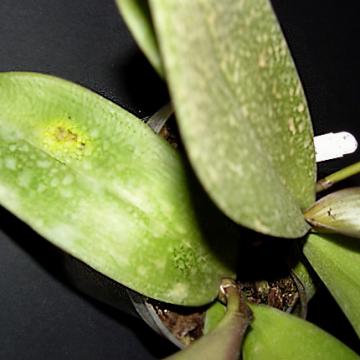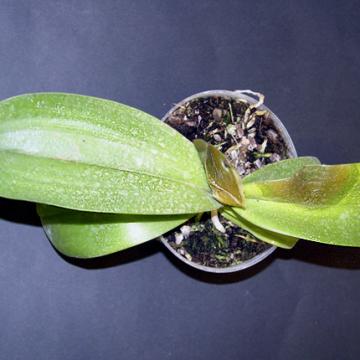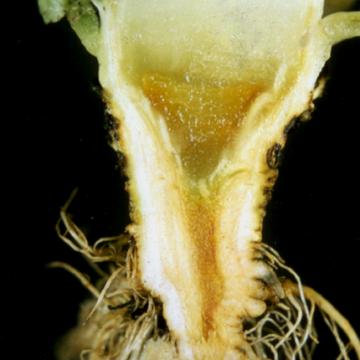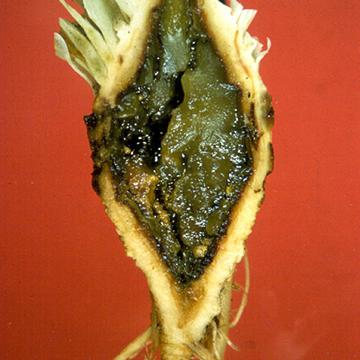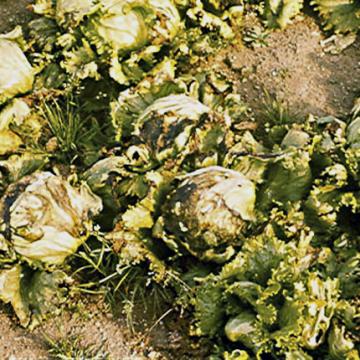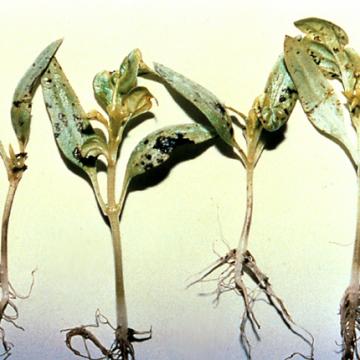DISEASE: Bacterial brown rot
HOST: Orchid
Phalaenopsis orchid with yellowish brown spot on leaf (left), an early stage of disease.
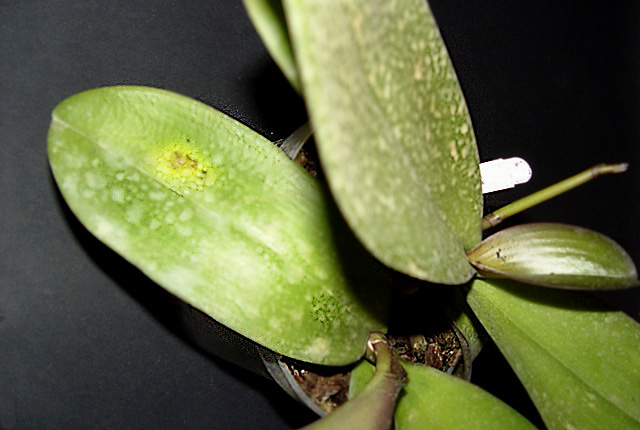
Bacterial brown rot | Orchid
DISEASE: Bacterial brown rot
HOST: Orchid (Phalaenopsis sp.)
PATHOGEN: Acidovorax cattleyae
PATHOGEN SYNONYM: Acidovorax avenae subsp. cattleyae
SOURCE: R. McMillan
DISEASE: Bacterial brown rot
HOST: Orchid
Leaves of Phalaenopsis orchid with advanced stage of decay.
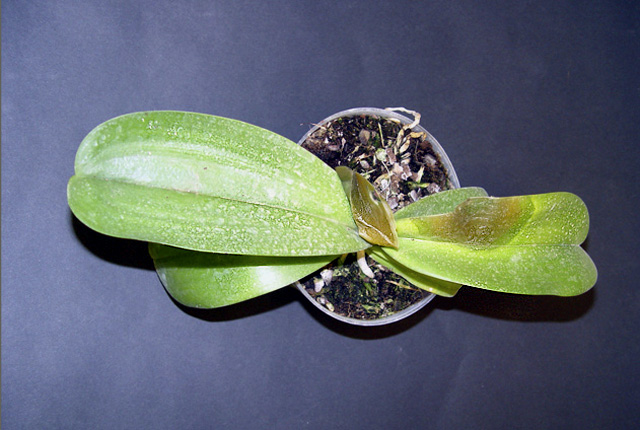
Bacterial brown rot | Orchid
DISEASE: Bacterial brown rot
HOST: Orchid (Phalaenopsis sp.)
PATHOGEN: Acidovorax cattleyae
PATHOGEN SYNONYM: Acidovorax avenae subsp. cattleyae
SOURCE: R. McMillan
DISEASE: Head rot (Jelly rot)
HOST: Lettuce
Sliced head of lettuce. Typical symptoms are a translucent appearance and browning or jelly rot of the stalk (crown).
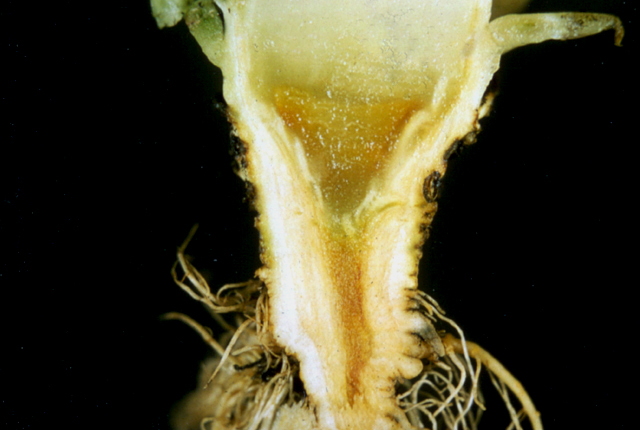
Head rot (Jelly rot) | Lettuce
DISEASE: Head rot (Jelly rot)
HOST: Lettuce (Lactuca sativa)
PATHOGEN: Pectobacterium carotovorum
PATHOGEN SYNONYM: Erwinia carotovora subsp. carotovora
SOURCE: J. Cho, A. Alvarez
DISEASE: Head rot (Jelly rot)
HOST: Lettuce
Advanced stage of lettuce stalk rot (crown).
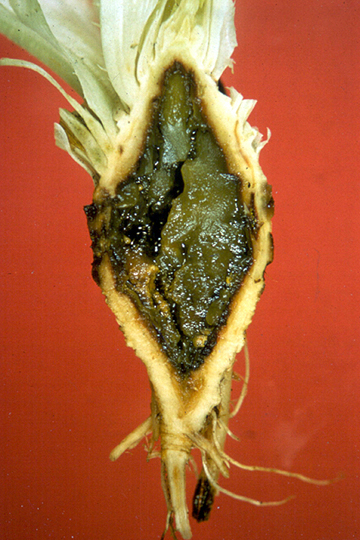
Head rot (Jelly rot) | Lettuce
DISEASE: Head rot (Jelly rot)
HOST: Lettuce (Lactuca sativa)
PATHOGEN: Pectobacterium carotovorum
PATHOGEN SYNONYM: Erwinia carotovora subsp. carotovora
SOURCE: J. Cho, A. Alvarez
DISEASE: Head rot (Jelly rot)
HOST: Lettuce
Head rot of lettuce first appears as rapid wilt of outer wrapper leaves. Wilt is caused by collapse of vascular tissues, which develop a pinkish to brown discoloration.
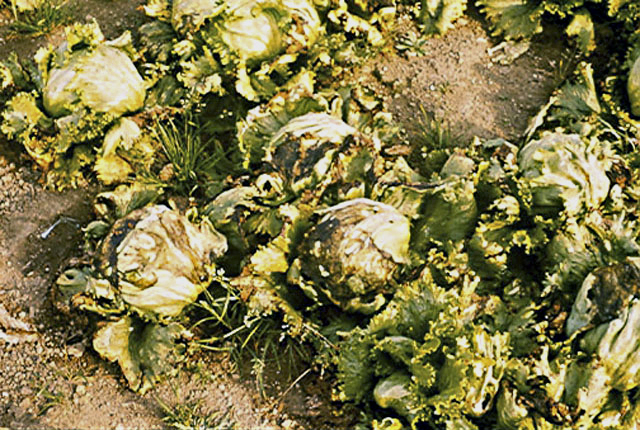
Head rot (Jelly rot) | Lettuce
DISEASE: Head rot (Jelly rot)
HOST: Lettuce (Lactuca sativa)
PATHOGEN: Pectobacterium carotovorum
PATHOGEN SYNONYM: Erwinia carotovora subsp. carotovora
SOURCE: L. Fucikovsky
DISEASE: Syringae seedling blight and leaf spot
HOST: Pepper
Blight lesions (on transplants) usually begin as water-soaked spots that later turn brown to black. Lesions are on cotyledons and first true leaves.
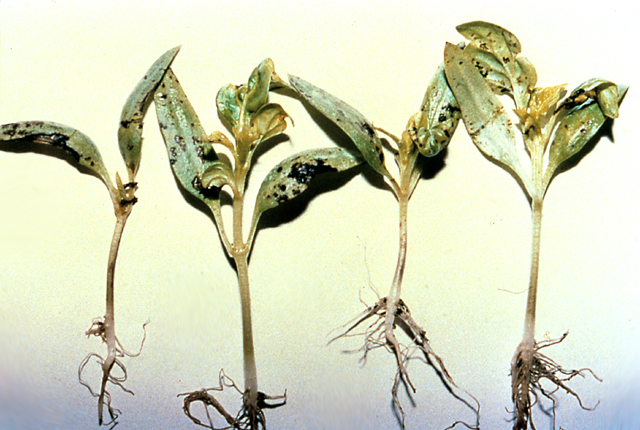
Syringae seedling blight and leaf spot | Pepper
DISEASE: Syringae seedling blight and leaf spot
HOST: Pepper (Capsicum annuum)
PATHOGEN: Pseudomonas syringae pv. syringae
SOURCE: APS


